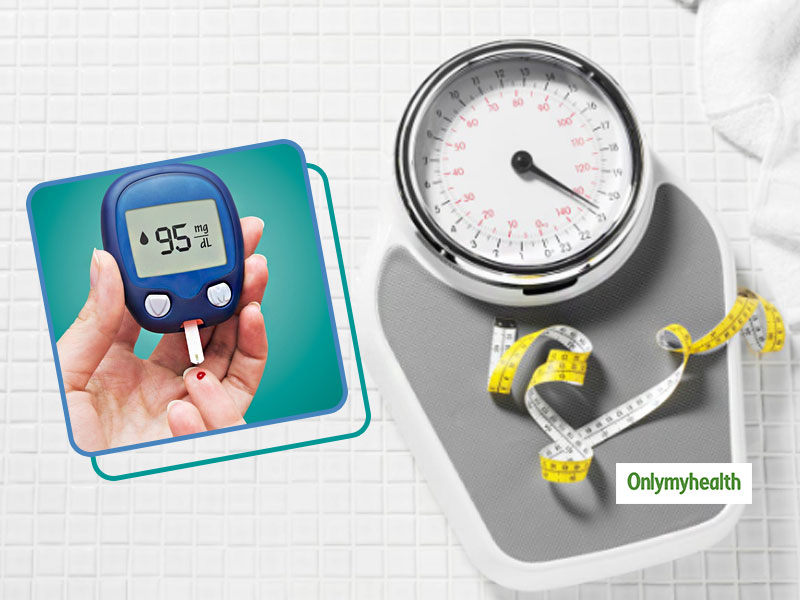Melbourne is home to a diverse and vibrant community where inclusivity and accessibility are valued principles. For people living with disabilities, navigating support systems can be complex, but knowing the available services makes a world of difference. From daily personal care to employment assistance and cutting-edge therapies, Melbourne offers a wide array of disability support services tailored to individual needs.
In this comprehensive guide, we’ll explore the landscape of disability support in Melbourne, including government programs like the NDIS, local community initiatives, and the wide spectrum of service providers empowering individuals and families every day.
Understanding Disability Support in Australia
What Is Disability Support?
Disability support refers to a broad range of services and resources designed to help individuals with physical, intellectual, sensory, or psychosocial disabilities live independently, participate in society, and reach their full potential. This support can include:
- Personal care and daily living assistance
- Mobility and transport services
- Housing and accommodation support
- Educational and employment help
- Therapeutic and medical interventions
The core goal is to promote independence, social inclusion, and quality of life.
The Role of the NDIS in Disability Services
The National Disability Insurance Scheme (NDIS) is Australia’s flagship support system for people under 65 with permanent and significant disabilities. It offers funding tailored to individual goals and needs, ensuring participants can access necessary services.
To be eligible for the NDIS, individuals must:
- Be aged under 65
- Be an Australian citizen or hold a permanent visa
- Have a permanent disability impacting daily life
Once approved, participants work with planners to create a support plan, which can fund therapies, mobility aids, home modifications, and more.
Overview of Disability Support Services in Melbourne
Government-Funded Services
In Melbourne, several services are funded directly through the NDIS, including:
- Core Supports (daily living, transport, consumables)
- Capacity Building Supports (therapies, employment training)
- Capital Supports (equipment, home modifications)
Additionally, the Victorian Government provides services through programs such as:
- The Disability Advocacy Program
- State-funded transport subsidies
- Housing and employment initiatives
Older Australians who aren’t eligible for the NDIS may receive support via My Aged Care.
Non-Government & Community Organisations
Melbourne is rich with non-government and community-driven support systems. Prominent organisations include:
- Scope – Offering early intervention, therapy, and inclusion programs
- Yooralla – Providing SIL, respite, allied health, and education services
- Life Without Barriers – Supporting youth, Indigenous people, and NDIS participants
- Melbourne City Mission (MCM) – Offering education, employment, and housing services
Local councils and community centers also provide inclusive recreational programs, carer support groups, and advocacy services.
Categories of Support Services Available
Personal and Daily Living Support
These services assist individuals with routine tasks such as bathing, dressing, meal preparation, grooming, and managing medication. Personal care workers provide support in-home, enabling clients to live independently and with dignity.
Accommodation and Supported Independent Living (SIL)
SIL allows individuals with higher needs to live in shared accommodation with round-the-clock support. Melbourne offers:
- Shared Supported Accommodation (SSA)
- Specialist Disability Accommodation (SDA)
- Respite care for temporary stays
Providers tailor accommodation options based on the individual’s functional capacity and goals.
Employment Services
The city supports inclusive employment through programs like:
- Disability Employment Services (DES) – Helping individuals find and maintain jobs
- JobAccess – Offering workplace modifications and support for employers
- Social enterprises – Such as The Bridge, employing people with disabilities in catering, gardening, and retail
Melbourne’s TAFEs and universities also have disability liaison officers who support students transitioning into the workforce.
Education and Training
From mainstream schools to specialist institutions, Melbourne ensures access to quality education:
- Individual Education Plans (IEPs) for students with disabilities
- Disability Inclusion Reforms for early intervention
- TAFE and universities with adaptive technologies and exam accommodations
Support extends from preschool through higher education.
Community Access and Social Participation
Disability should not limit one’s ability to participate in community life. Programs in Melbourne encourage:
- Group outings and recreational activities
- Day programs with life skills development
- Sports clubs and arts organizations offering inclusive classes
- Volunteering opportunities
These foster belonging and enhance mental well-being.
Allied Health and Therapy Services
Allied health professionals play a central role in improving functional capacity. Services include:
- Physiotherapy – for mobility and strength
- Occupational Therapy (OT) – for daily task independence
- Speech Pathology – for communication and swallowing
- Psychology & Behaviour Support – for emotional and behavioural challenges
Many providers offer in-clinic and mobile services across Melbourne.
Assistive Technology and Equipment
Assistive technologies (AT) help individuals achieve greater autonomy. Common supports include:
- Wheelchairs and walking frames
- Communication devices and hearing aids
- Smart home technologies and sensory tools
NDIS participants may apply for funding, with assessments conducted by allied health professionals.
Transport Assistance
Mobility shouldn’t be a barrier to engagement. Melbourne offers:
- Multi-Purpose Taxi Program (MPTP) – Reducing taxi fares for eligible individuals
- Community transport – Provided by councils and not-for-profits
- Modified vehicle funding – For accessible cars via NDIS
Public transport also continues to improve accessibility with ramps, announcements, and designated spaces.
How to Access Disability Support Services in Melbourne
Applying for the NDIS
- Check Eligibility: Age, residency, and disability requirements
- Apply: Online, via phone, or through a Local Area Coordinator (LAC)
- Planning Meeting: Create a support plan based on personal goals
- Implementation: Choose service providers and begin receiving support
Free support is available from LACs throughout the application process.
Choosing a Service Provider
When selecting a provider, consider:
- Registration with NDIS (for NDIS-funded services)
- Experience and staff qualifications
- Availability and service area
- Compatibility with individual preferences
NDIS participants can change providers if they are unsatisfied with services, especially under self-managed or plan-managed arrangements.
Local Area Coordinators (LACs) and Support Coordinators
LACs help with planning and linking to services, while Support Coordinators assist in implementing more complex support plans. Both play a vital role in navigating the system.
Tailored Support for Specific Groups
Children and Early Intervention
The Early Childhood Early Intervention (ECEI) approach offers early therapy for children aged 0–6. Services include:
- Developmental assessments
- Speech and occupational therapy
- Play-based learning
Early intervention can significantly improve outcomes for children with developmental delays.
Young Adults and Transitioning from School
Programs exist to help young people transition into adulthood:
- School Leaver Employment Supports (SLES)
- Life skills programs for cooking, budgeting, etc.
- Support with further study or apprenticeships
These services build independence and confidence during critical years.
Seniors with Disabilities
People over 65 may transition from NDIS to My Aged Care. Services for seniors include:
- Home care packages
- Allied health
- Social support groups
Melbourne also offers dementia-specific support through specialised organisations.
CALD and Indigenous Communities
Cultural sensitivity is essential in disability services. In Melbourne:
- NDIS Interpreting services help non-English speakers
- Indigenous-led providers deliver holistic and community-focused support
- CALD-specific programs ensure communication and respect for traditions
Challenges in the Disability Support Landscape
Service Gaps and Waitlists
While Melbourne offers extensive services, challenges include:
- Limited provider options in outer suburbs
- Long wait times for therapy and housing
- Demand outstripping supply in some areas
Navigating Complex Systems
Many families struggle with:
- NDIS jargon and paperwork
- Overlap between Centrelink, Medicare, and disability services
- Inconsistent communication from providers
Support Coordinators can be invaluable in streamlining access.
Financial Accessibility and Plan Management
Managing NDIS budgets can be difficult. Participants can choose between:
- Self-managed – more control, but more responsibility
- Plan-managed – middle-ground
- NDIA-managed – limited flexibility
Plan managers help track spending, pay invoices, and maximize plan value.
Innovations and Future Trends in Disability Support
Digital Tools and Telehealth Services
The digital age brings exciting tools:
- Virtual therapy sessions (telehealth)
- Apps for communication and scheduling
- Smart home devices improving independence
These innovations help overcome geographic and mobility barriers.
Policy Reforms and Legislative Updates
Key updates include:
- Pricing framework changes for NDIS providers
- Expansion of Independent Assessments (paused, but under review)
- Victorian Government’s commitment to universal design
Advocacy continues to push for fairer, more transparent systems.
Community-Driven Change
People with disabilities are increasingly leading their own advocacy. Peer-led initiatives foster empowerment, such as:
- Self-advocacy groups
- Co-designed programs
- Inclusive design in public infrastructure and education
Conclusion: Empowering People with Disability in Melbourne
Melbourne stands as a city committed to empowering people with disabilities through its wide array of support services, community programs, and inclusive initiatives. Whether it’s through the NDIS, a local nonprofit, or a passionate support worker, these services pave the way for individuals to thrive, connect, and live life on their own terms.
By understanding what’s available, how to access it, and the evolving nature of the sector, families and individuals can navigate the journey with greater confidence and clarity.
FAQs: Disability Support Services in Melbourne
Q1: What services does the NDIS cover in Melbourne?
The NDIS covers daily living support, therapies, assistive technology, community participation, home modifications, and more—tailored to individual needs.
Q2: How do I find a disability support provider in Melbourne?
You can use the NDIS Provider Finder, consult a Support Coordinator, or get referrals from community centers and online reviews.
Q3: Is disability support only available through the NDIS?
No. Community organisations, charities, and state government programs also offer support regardless of NDIS eligibility.
Q4: Can I switch disability service providers if I’m not happy?
Yes. You can change providers at any time, especially if you’re on a self-managed or plan-managed NDIS plan.
Q5: Are there disability support programs for people over 65?
Yes. Seniors can access support via My Aged Care, which includes in-home care, therapy, and social activities.
Q6: Are there emergency disability support services in Melbourne?
Some providers offer crisis response and 24/7 care services, depending on your NDIS plan and location.














Leave a Reply